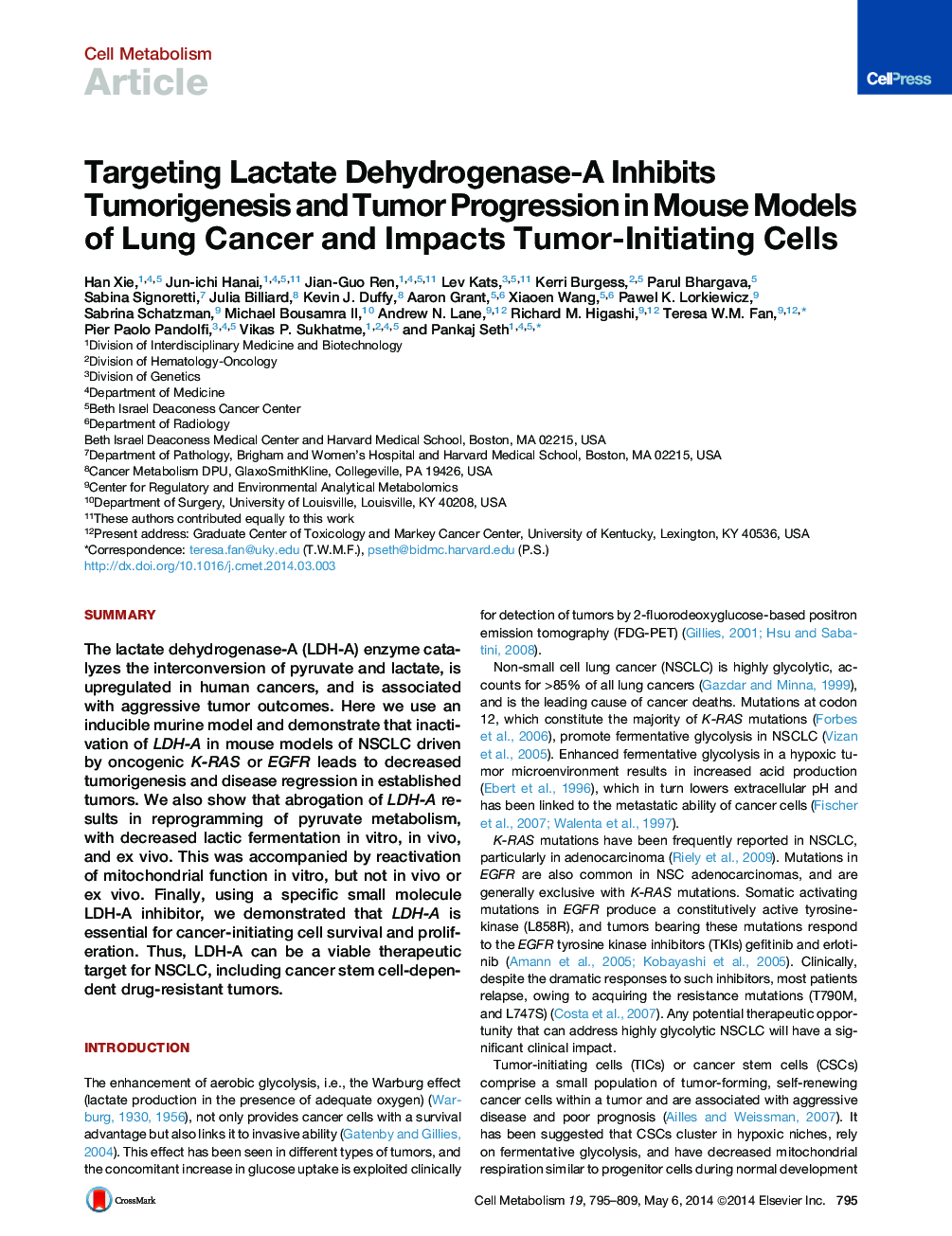| Article ID | Journal | Published Year | Pages | File Type |
|---|---|---|---|---|
| 2792643 | Cell Metabolism | 2014 | 15 Pages |
•An inducible LDH-A mouse model has been developed and characterized•Reduced LDH-A results in regression of established tumors in NSCLC mouse models•Cancer-initiating cells are susceptible to LDH-A inhibition•Pharmacologic inhibition of LDH-A mimics the effects of genetic attenuation
SummaryThe lactate dehydrogenase-A (LDH-A) enzyme catalyzes the interconversion of pyruvate and lactate, is upregulated in human cancers, and is associated with aggressive tumor outcomes. Here we use an inducible murine model and demonstrate that inactivation of LDH-A in mouse models of NSCLC driven by oncogenic K-RAS or EGFR leads to decreased tumorigenesis and disease regression in established tumors. We also show that abrogation of LDH-A results in reprogramming of pyruvate metabolism, with decreased lactic fermentation in vitro, in vivo, and ex vivo. This was accompanied by reactivation of mitochondrial function in vitro, but not in vivo or ex vivo. Finally, using a specific small molecule LDH-A inhibitor, we demonstrated that LDH-A is essential for cancer-initiating cell survival and proliferation. Thus, LDH-A can be a viable therapeutic target for NSCLC, including cancer stem cell-dependent drug-resistant tumors.
Graphical AbstractFigure optionsDownload full-size imageDownload high-quality image (174 K)Download as PowerPoint slide
